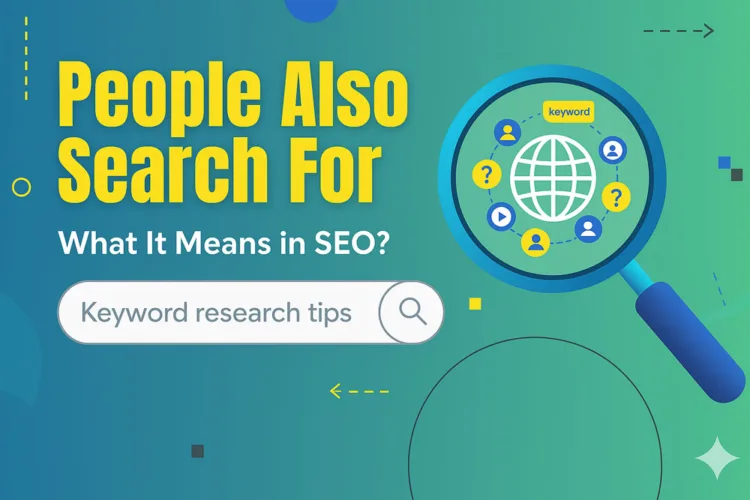
When it comes to making your website show up well on Google, it can be tricky because the rules keep changing. But Danny Sullivan, who works closely with Google, has shared some helpful tips.
The main idea is to pay attention to what people like when they use Google and make your website better for them. If you follow these tips, your website can become more noticeable on Google and rank higher in search results.
The Core Guidance From Google Has Been Consistent For 20 Years
The Relationship Between Google and the SEO Industry
The SEO industry has always been eager to uncover the secrets of Google’s search algorithm to achieve top rankings. Over the years, a symbiotic relationship has developed between Google and SEO professionals, with Google recognising the value of working with the industry. However, there is often conflicting advice about the best way to rank on Google, leading to confusion among SEO professionals.
Google’s Advice for Success with Search
Danny Sullivan emphasises that Google’s core guidance for success with search has remained consistent for over 20 years. The fundamental principle is making pages for users, not search engines. Google aims to provide the best results for user queries, and it values precise sourcing, evidence of expertise, and intuitive page structure. This advice is not new but has been reiterated over the years.
The Secret To Visibility On Google
Google’s Focus on User Satisfaction
The secret to visibility on Google lies in understanding and fulfilling user intent. Google aims to surface content that provides the best response to a query, and it invests in constant iteration to improve its product. By focusing on user satisfaction, Google can deliver the best results and maintain its dominance as the leading search engine.
Building Around the User
To achieve visibility on Google, building everything around the user is essential. This means creating content that is easily accessible, directly answers user queries, and comprehensively addresses the topic at hand. User experience (UX) and conversion rate optimisation (CRO) are crucial in providing a satisfying experience for users. By aligning with Google’s objective of user satisfaction, you can enhance your chances of ranking well on the search engine.
What Google Wants Is Timeless Common Sense, UX, And CRO
Making Pages for Users, Not for Search Engines
Google’s long-standing advice is to create pages for users rather than for search engines. This means focusing on providing valuable and helpful content that meets user needs. While various factors influence ranking, such as domain authority, user signals, and topical relevance, the ultimate goal is to present information trustworthy and authoritatively.
Understanding User Intent and Providing the Best Experience
A key aspect of SEO is understanding user intent and tailoring your content to meet those needs. Different queries require different approaches, whether transactional, navigational, or informational. By structuring your page in a way that intuitively addresses user intent and provides a satisfying experience, you increase the likelihood of ranking well on Google.
Build Your SEO Strategy Around What Is Fundamental

Combining UX, content strategy, and technical SEO elements is crucial to building a robust and lasting SEO strategy. The E-A-T framework (Expertise, Authoritativeness, Trustworthiness) is a playbook for integrating these elements.
By focusing on quality content and user experience and providing a trustworthy source of information, you can establish a solid online presence and achieve long-term success in search rankings.
Google’s Evolving Algorithms and SERP Personalization
As Google continues to evolve, its algorithms and search results pages (SERPs) become more personalised. With the introduction of generative AI and machine learning, Google aims to provide better results based on user intent satisfaction. This reinforces the importance of usability and user-centric SEO strategies, prioritising what users want and delivering a satisfying experience.
The Balance Between Protecting Google’s Product and Offering Advice
Google is cautious about revealing too much about its algorithms and systems to prevent spam and maintain the quality of its search results. However, Google also strives to offer guidance on how to create a better web with reliable information. SEO professionals should focus on user satisfaction rather than solely chasing rankings. By thinking like Google and prioritising the user, you can align your SEO strategy with Google’s objectives and achieve better results.
Achieving top rankings on Google requires understanding the core principles that drive the search engine’s algorithm. You can improve your website’s visibility and dominate rankings by focusing on user experience, providing valuable content, and aligning with Google’s long-standing advice. It is essential to prioritise user satisfaction, build a robust SEO strategy, and stay updated on Google’s evolving algorithms to stay ahead in the competitive SEO world.
In summary, achieving the top of Google’s search rankings involves understanding the fundamental principles guiding its algorithm. Your website’s visibility and dominance in rankings depend on prioritizing user experience, delivering valuable content, and adhering to Google’s tried-and-true recommendations. Prioritizing user satisfaction, crafting a strong SEO strategy, and staying informed about Google’s ever-changing algorithms are crucial steps to maintaining a competitive edge in the dynamic world of SEO. Consistent effort in these areas will contribute to long-term success and sustained prominence in Google’s search results.
FAQs
1. What is SEO, and why is it important for my website?
SEO, or Search Engine Optimization, is a set of strategies aimed at improving a website’s visibility on search engines like Google. It’s crucial because higher visibility increases the likelihood of attracting relevant traffic to your site, which can lead to more visitors, customers, or followers.
2. How does Google determine the ranking of websites?
Google uses a complex algorithm to evaluate websites. Factors include the relevance of content, the quality of backlinks, user experience, and adherence to SEO best practices. Following these guidelines can positively impact your website’s ranking.
3. What is user experience, and why does it matter for SEO?
User experience refers to how visitors interact with your website. It includes factors like site speed, mobile-friendliness, and overall usability. Google values positive user experiences and rewards sites that provide them with higher rankings.
4. How long does it take to see results from SEO efforts?
SEO is a gradual process, and the timeline for results can vary. Generally, improvements may be noticed within a few weeks to months, but significant progress may take several months or more, depending on factors such as competition and the current state of your website.
5. Why is it important to stay informed about Google’s algorithm updates?
Google frequently updates its search algorithm to enhance user experience and provide more accurate results. Staying informed about these updates is essential for adapting your SEO strategy to align with Google’s evolving requirements, ensuring continued visibility and success.



